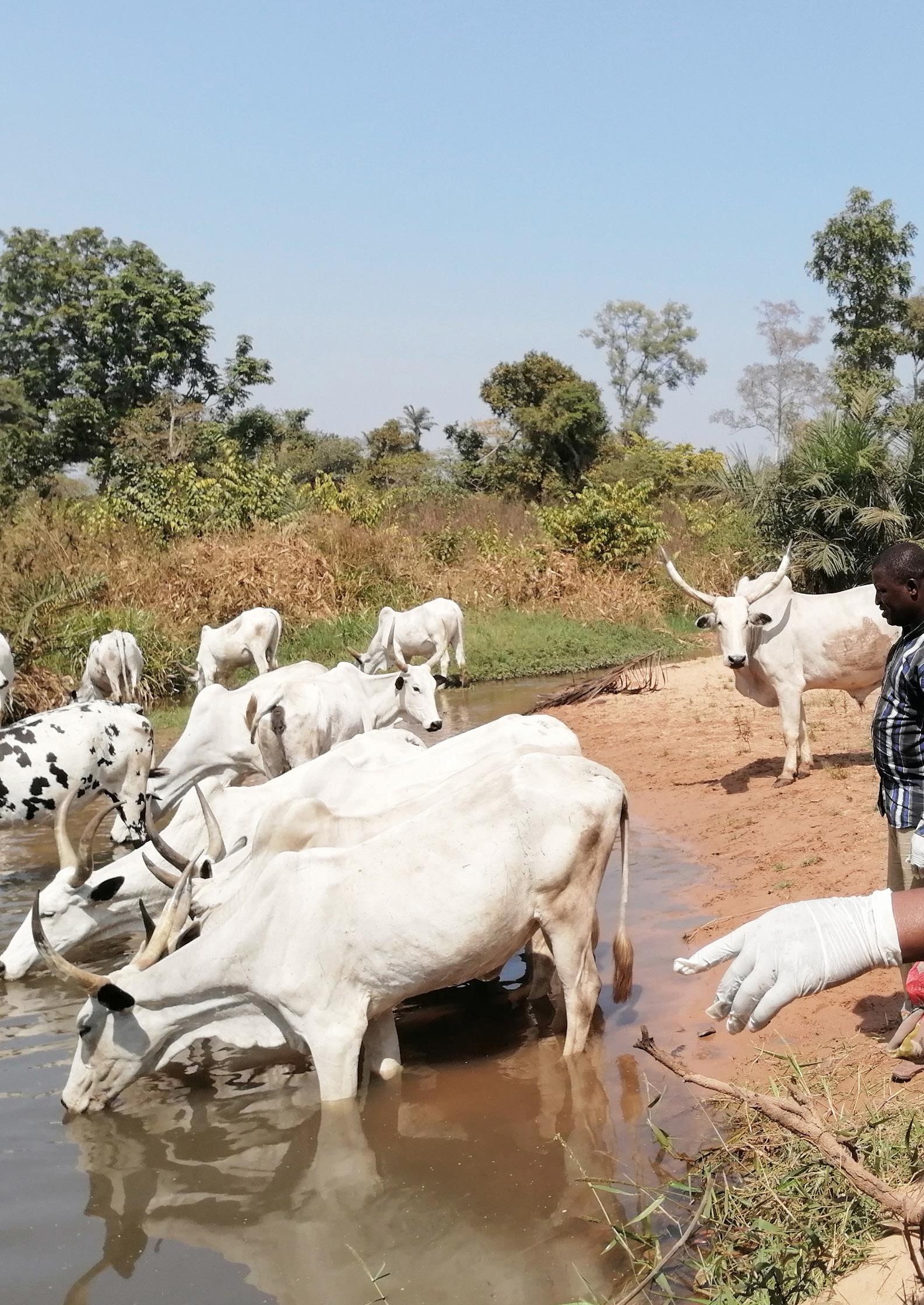
3 minute read
Alumni
by IFS
4 million in research grants as the principal investigator and another ZAR 2.3 million as a member of collaborative research grants, excluding funds that I accessed for travel and other training opportunities.
My research career has been fulfilling and rewarding. I was promoted to Associate Professor in 2014 and attained full professorship in 2018. I am now an established researcher (NRF C3-rated) and I enjoy visibility in my professional circle. This positions me as a leading scientist in the field of water science in South Africa. I am the current president of the Society of Environmental Toxicology and Chemistry (SETAC) Africa, and I represent Africa in the SETAC World Council.
In 2008, I attended a workshop at Egerton University in Kenya on research management and leadership skills for women in agricultural and natural sciences. It was co-organised by IFS, the United Nations University and the Institute for Natural Resources in Africa. It was the first of several workshops that started preparing me for leadership roles in higher education. I am eternally grateful to IFS and the staff who facilitated the training. IFS gave me a leap in my research career progression, and that first IFS grant enhanced my confidence and ability to attract other research funds.
My research career is my passion and it is at the core of my teaching and community engagement activities. For me, it is a call that I answered to inspire a boy or girl child from my community that it is possible to achieve one’s goals with determination. The resources will eventually become available if one is committed and diligent. It is satisfying to know that my journey as a researcher will continue to motivate young Africans from disadvantaged backgrounds towards excellence.
IFS Alumni Network
Recognising the importance of its alumni network, IFS provides support for individual alumni, associations of alumni which have been founded in several countries in Africa, and informal initiatives launched by alumni in Asia, and Latin America and the Caribbean. Our past grantees represent a source of mentoring, networking and collaboration in their respective countries, offering a range of services that benefit members, aspiring researchers, grant applicants and IFS. Examples include support for new applicants, advice to prospective grantees through seminars and talks, publicising IFS grant calls, collaborating with other alumni associations, and informing IFS of relevant local and national activities. IFS always tries to find ways to mobilise our existing resources to activate, support and strengthen our alumni.
African IFS Alumni Associations Launch a Webinar Series on Investing in Future Scientists in PostCOVID-19 Africa
Recognising the importance of designing recovery strategies in a post-COVID world, the IFS Alumni Associations in Africa – together with the IFS Secretariat – are embarking on a series of online consultative meetings, in collaboration with representatives of other regional scientific communities and stakeholders in Africa and globally. The purpose of the meetings is to engage in intensive and targeted deliberations on improved interventions to strengthen the science capacity of early career researchers in Africa in the post-COVID world, by deliberating on issues such as how:
> COVID-19 has had an impact on the work of early career researchers in Africa > Our understandings of COVID-19 help us to define a pathway forward as Africa grapples with addressing the human and socioeconomic concerns, rebuilding societies and avoiding stress on the environment > Governments promote policies and strategies that are science-based to address the compound risks facing Africa, and > To bring ‘normalcy’ to our lives as lessons are learned to enhance our resilience to future threats of various sorts.
The webinar series will enable the IFS Alumni Associations in Africa to act together with regional initiatives to identify which barriers should be reduced and which enablers should be reinforced to strengthen the science capacity of early career researchers in a post-COVID world. The resulting recommendations are expected to lead to strong endogenous research capacity, to develop more contextualised innovations and practices driven by local demands, and to promote targeted, purpose-driven regional and global collaboration.










